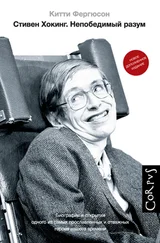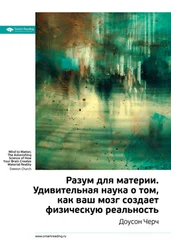Peterson C. et al. Strengths of Character, Orientations to Happiness, and Life Satisfaction // The Journal of Positive Psychology, 2007. Vol. 2. P. 149–156.
Peterson C. et al. Strengths of Character, Orientations to Happiness, and Life Satisfaction // The Journal of Positive Psychology, 2007. Vol. 2. P. 149–156.
Wood A., Froh J., Geraghty A. Gratitude and Well-Being: a Review and Theoretical Integration // Clinical Psychology Review, 2010. Vol. 30. P. 890–905.
Wood A., Froh J., Geraghty A. Gratitude and Well-Being: a Review and Theoretical Integration // Clinical Psychology Review, 2010. Vol. 30. P. 890–905.
Wood A. et al. Gratitude Influences Sleep Through the Mechanism of Pre-Sleep Cognitions // Journal of Psychosomatic Research, 2009. Vol. 66. P. 43–48.
Lau R., Cheng S.-T. Gratitude Lessens Death Anxiety // European Journal of Ageing, 2011. Vol. 8. P. 169–175.
Wood A., Froh J., Geraghty A. Gratitude and Well-Being: a Review and Theoretical Integration // Clinical Psychology Review, 2010. Vol. 30. P. 890–905.
Roese N. The Functional Basis of Counterfactual Thinking // Journal of Personality and Social Psychology, 1994. Vol. 66. P. 805–818.
Taylor S. Adjustment to Threatening Events: a Theory of Cognitive Adaptation // American Psychologist, 1983. Vol. 38. P. 1161–1173.
Roemer L., Borkovec T. Effect of Suppressing Thoughts About Emotional Material // Journal of Abnormal Psychology, 1994. Vol. 103. P. 467–474.
Davis C. et al. The Undoing of Traumatic Life Events // Personality and Social Psychology Bulletin, 1995. Vol. 21. P. 109–124.
Канеман Д. Думай медленно… решай быстро. М.: АСТ, 2013.
Koo M. et al. It’s a Wonderful Life: Mentally Subtracting Positive Events Improves People’s Affective States, Contrary to Their Affective Forecasts // Journal of Personality and Social Psychology, 2008. Vol. 95. P. 1217–1224.
Wood A., Froh J., Geraghty A. Gratitude and Well-Being: a Review and Theoretical Integration // Clinical Psychology Review, 2010. Vol. 30. P. 890–905.
Koo M. et al. It’s a Wonderful Life: Mentally Subtracting Positive Events Improves People’s Affective States, Contrary to Their Affective Forecasts // Journal of Personality and Social Psychology, 2008. Vol. 95. P. 1217–1224.
Koo M. et al. It’s a Wonderful Life: Mentally Subtracting Positive Events Improves People’s Affective States, Contrary to Their Affective Forecasts // Journal of Personality and Social Psychology, 2008. Vol. 95. P. 1217–1224.
Taylor S. Adjustment to Threatening Events: a Theory of Cognitive Adaptation // American Psychologist, 1983. Vol. 38. P. 1161–1173.
Frias A. et al. Death and Gratitude: Death Reflection Enhances Gratitude // The Journal of Positive Psychology, 2011. Vol. 6. P. 154–162.
Frias A. et al. Death and Gratitude: Death Reflection Enhances Gratitude // The Journal of Positive Psychology, 2011. Vol. 6. P. 154–162.
D’Argembeau A., van der Linden M. Individual Differences in the Phenomenology of Mental Time Travel: The Effect of Vivid Visual Imagery and Emotion Regulation Strategies // Consciousness and Cognition, 2006. Vol. 15. P. 342–350.
Schroevers M., Kraaij V., Garnefski N. Cancer Patients’ Experience of Positive and Negative Changes Due to the Illness: Relationships with Psychological Well-Being, Coping, and Goal Reengagement // Psycho-Oncology, 2011. Vol. 20. P. 165–172.
Peterson C. et al. Strengths of Character, Orientations to Happiness, and Life Satisfaction // The Journal of Positive Psychology, 2007. Vol. 2. P. 149–156.
Sprecher S., Fehr B. Enhancement of Mood and Self-Esteem as a Result of Giving and Receiving Compassionate Love // Current Research in Social Psychology, 2006. Vol. 11. P. 227–242.
Marcel G. Man Against Mass Society. South Bend, IN: St. Augustine’s Press, 2008. P. 117.
Hofmann S., Grossman P., Hinton D. Loving-Kindness and Compassion Meditation: Potential for Psychological Interventions // Clinical Psychology Review, 2011. Vol. 31. P. 1126–1132.
Schwartz C., Sendor M. Helping Others Helps Oneself: Response Shift Effects in Peer Support // Social Science and Medicine, 1999. Vol. 48. P. 1563–1575.
Schwartz C., Sendor M. Helping Others Helps Oneself: Response Shift Effects in Peer Support // Social Science and Medicine, 1999. Vol. 48. P. 1563–1575.
Brown S. et al. Coping with Spousal Loss: Potential Buffering Effects of Self-Reported Helping Behavior // Personality and Social Psychology Bulletin, 2008. Vol. 34. P. 849–861.
Brown S. et al. Coping with Spousal Loss: Potential Buffering Effects of Self-Reported Helping Behavior // Personality and Social Psychology Bulletin, 2008. Vol. 34. P. 849–861.
Weinstein N., Ryan R. When Helping Helps: Autonomous Motivation for Pro-Social Behavior and Its Influence on Well-Being for the Helper and Recipient // Journal of Personality and Social Psychology, 2010. Vol. 98. P. 222–244.
Weinstein N., Ryan R. When Helping Helps: Autonomous Motivation for Pro-Social Behavior and Its Influence on Well-Being for the Helper and Recipient // Journal of Personality and Social Psychology, 2010. Vol. 98. P. 222–244.
Isen A., Levin P. Effect of Feeling Good on Helping: Cookies and Kindness // Journal of Personality and Social Psychology, 1972. Vol. 21. P. 384–388.
Isen A., Levin P. Effect of Feeling Good on Helping: Cookies and Kindness // Journal of Personality and Social Psychology, 1972. Vol. 21. P. 384–388.
Toegel G., Anand N., Kilduff M. Emotion Helpers: The Role of High Positive Affectivity and High Self-Monitoring Managers // Personnel Psychology, 2007. Vol. 60. P. 337–365.
Thayer R. Energy, Tiredness, and Tension Effects of a Sugar Snack Versus Moderate Exercise // Journal of Personality and Social Psychology, 1987. Vol. 52. P. 119–125.
Daishonin N. On the Three Virtues of Food // The Writings of Nichiren Daishonin, Vol. 2. Japan: Soka Gakkai, 2006. P. 1060.
Straub E., Vollhardt J. Altruism Born of Suffering: The Roots of Caring and Helping After Victimization and Other Trauma // American Journal of Orthopsychiatry, 2008. Vol. 78. P. 267–280.
Straub E., Vollhardt J. Altruism Born of Suffering: The Roots of Caring and Helping After Victimization and Other Trauma // American Journal of Orthopsychiatry, 2008. Vol. 78. P. 267–280.
Blackledge J., Hayes S. Emotion Regulation in Acceptance and Commitment Therapy // Psychotherapy in Practice, 2001. Vol. 57. P. 243–255.
Читать дальше
Конец ознакомительного отрывка
Купить книгу





![Рейчел Херц - Почему мы едим то, что едим [Наука о том, как наш мозг диктует нам, что есть]](/books/390411/rejchel-herc-pochemu-my-edim-to-chto-edim-nauka-o-t-thumb.webp)






